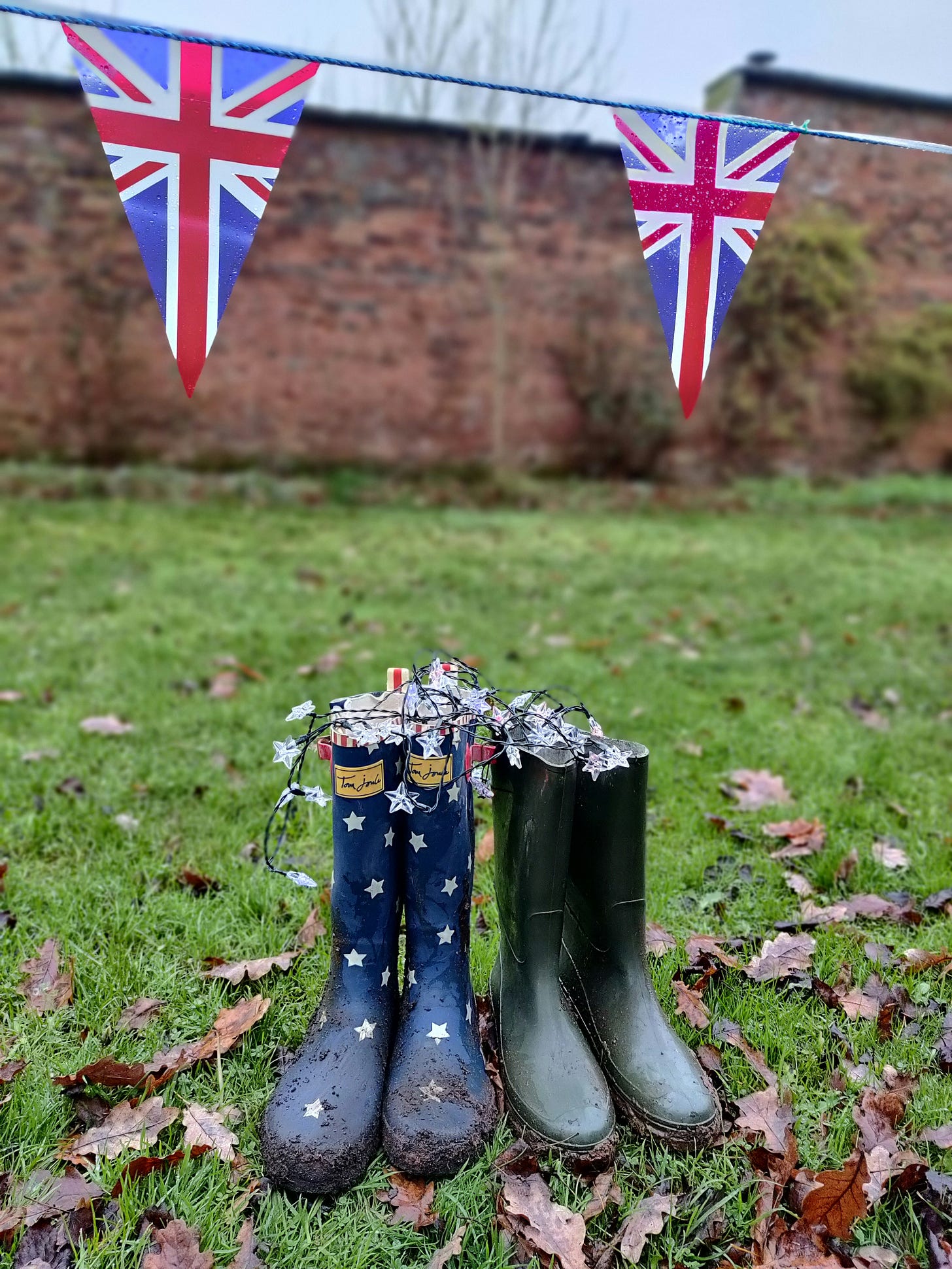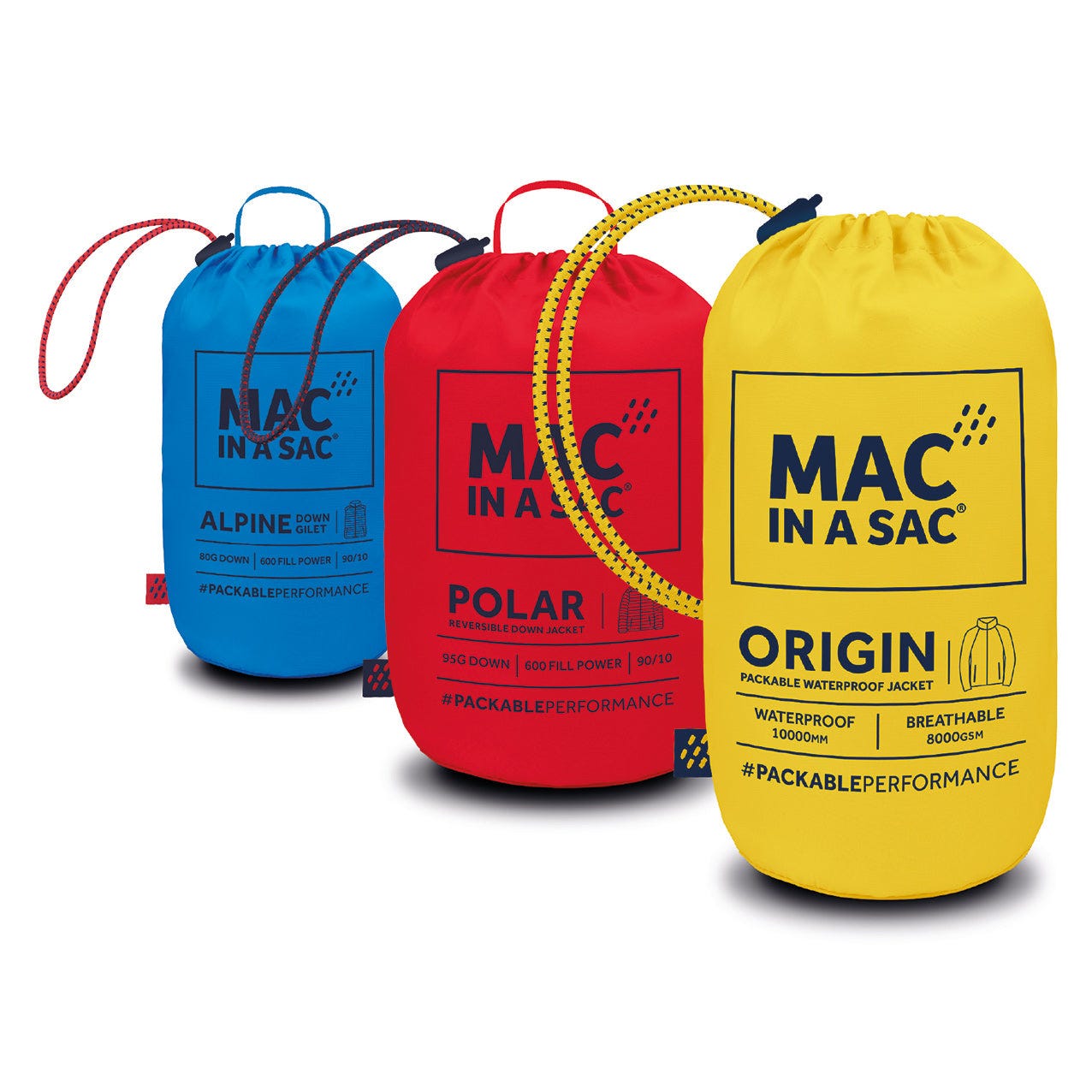The Day My Pants Betrayed Me: A Guide to British Clothing
The Day I Learned My Pants Were Underwear
Welcome to An American's Guide to British Life - my lighthearted celebration of British culture! As an American living in the UK for the past three years, I love exploring the delightful cultural differences and similarities that make life here so interesting. These articles are written with affection and humor, never judgement and always with respect.
Picture this: you're on a trip abroad, the only American in a group of Brits, when you enthusiastically tell everyone about your new fleece-lined pants with zippered pockets.
The sudden silence is broken only by poorly suppressed giggles.
You see, I'd just announced to the entire group that I was wearing thermal underwear with surprisingly sophisticated pocket features.
Once I hastily clarified that I meant my "trousers," the incident became yet another entry in my growing collection of Anglo-American vocabulary mishaps - and a story that still gets retold at every reunion.
But clothing mix-ups don't just happen in casual conversation. Sometimes, they can lead to full-blown social situations gone hilariously wrong...
The Great Fancy Dress Fiasco
Let me tell you about one of the most common clothing translation traps awaiting unsuspecting Americans.
Imagine getting invited to your first British "fancy dress party." Being a logical American, you'd naturally assume this means formal wear - maybe something you'd wear to a nice dinner or wedding.
But no.
You'd walk in expecting elegant dresses and suits, only to find yourself surrounded by pirates, superheroes, and someone in a remarkably detailed Peppa Pig costume.
You see, "fancy dress" in British English means costume party.
Yes, costume party.
No, it makes no logical sense.
And yes, this linguistic trap has claimed many American victims before you, creating stories that get retold at dinner parties for years to come. I was fortunately warned about this one before making the mistake myself, but I've heard enough horror stories from other Americans to know it's a common pitfall.
Speaking of costume confusion, there's another term that doesn't mean quite what Americans think.
When Brits say "costume," they often mean a swimsuit. But wait - it gets more complicated:
Swimming costume (UK) = Woman's swimsuit (US)
Cossie (UK) = short for swimming costume (UK)
Bathing suit (US) = Swimming costume (UK)
Swimsuit (US) = Swimming costume (UK)
Trunks = Trunks (finally, one that's the same!)
So if a British friend invites you to a costume party by the pool... well, you might want to clarify exactly what kind of outfit they're expecting.
Your Essential British-American Clothing Translation Guide
Before we dive deeper into British clothing culture, let's cover the basics. Think of this as your survival guide to avoid accidentally announcing your underwear choices to the room.
Everyday Basics:
Pants (UK) = Underwear
Trousers (UK) = Pants (US)
Knickers (UK) = Women's underwear/panties (US)
Vest (UK) = Tank top/undershirt (US)
Waistcoat (UK) = Vest (US)
Jumper (UK) = Sweater (US)
Dressing gown (UK) = Bathrobe (US)
Dungarees (UK) = Overalls (US)
Overalls (UK) = Coveralls (US)
Trouser suit (UK) = Pants suit (US)
Rain Gear & Outerwear:
Mac/Pack-a-mac/Mac in a Sack (UK) = Light raincoat/packable rain jacket (US)
Waterproofs (UK) = Rain gear (US)
Kagoul/Cagoule (UK) = Lightweight raincoat/windbreaker (US)
Gilet (UK) = Puffy Vest/Body warmer (US) - pronounced "jee-lay", not "gill-it"
Woolly hat (UK) = Beanie (US)

Activity Wear & Equipment:
Walking boots (UK) = Hiking boots (US)
Rucksack (UK) = Backpack (US)
Walking kit (UK) = Hiking gear (US)
Track suit bottoms (UK) = Sweatpants (US)
Trainers (UK) = Sneakers or Tennis shoes (US)
Football boots (UK) = Cleats (US)
Wellies (UK) = Rain boots (US)
Accessories & Small Items:
Hair bobble (UK) = Hair tie (US)
Plaster (UK) = Band-Aid (US)
Brolly (UK) = Umbrella (US)
Handbag (UK) = Purse (US)
Purse (UK) = Wallet (US)
Bum bag (UK) = Fanny pack (US) - more on this later!
Braces (UK) = Suspenders (US)
Suspenders (UK) = Garter belt (US) - yes, this one can lead to some particularly awkward moments!

The Great Gear vs. Kit Debate
Here's another linguistic twist that caught me off guard: in Britain, your "gear" is your "kit." While Americans might say "hiking gear" or "camping gear," Brits talk about their "hiking kit" or "camping kit."
And it goes beyond outdoor equipment:
Sports gear (US) = Sports kit (UK)
Gym gear (US) = Gym kit (UK)
Work gear (US) = Work kit (UK)
Beach gear (US) = Beach kit (UK)
The word "kit" is so ingrained in British culture that it extends beyond just clothing. Your "kit" could include anything from your football (soccer) uniform to the contents of your makeup bag. If a Brit asks if you've "got your kit," they're essentially asking if you have everything you need for the activity at hand.
I learned this one during my first group hike when someone asked if I had "sorted my walking kit." I confidently said yes, thinking they meant just walking boots and a coat. Turns out they were asking about my entire hiking setup - from waterproofs to walking poles. No wonder they looked concerned when I showed up with just "gear" for a sunny day!
The Pack-a-mac Philosophy & The Truth About British Rain
Speaking of waterproofs, let me tell you about another hard-learned lesson. That "waterproof" jacket that served me perfectly well in Utah? It turned out to be what Brits would categorize as "water resistant" at best - suitable for a light drizzle but utterly useless against proper British rain.
You see, Brits have an entire ecosystem of waterproof gear ranked by precipitation levels:
The "light drizzle mac" (for your basic Tuesday morning)
The "proper waterproof" (for your average rainy day)
The "serious weather gear" (for what they casually call "a bit of rain" but what Americans would consider a legitimate weather event)
When a British person says something is "waterproof," they mean it will keep you dry in a sideways rain while waiting for a bus that's running 20 minutes late.
Their standards for water resistance have been forged by centuries of dealing with rain that seems to defy gravity and find its way through any tiny gap in your weather defenses.
This brings us to the pack-a-mac - that lightweight, foldable raincoat that scrunches into its own pocket. It isn't just a piece of clothing - it's a way of life.
These crinkly companions are stuffed into desk drawers, glove compartments, and handbags across Britain. The rustling sound of multiple people simultaneously unpacking their pack-a-macs at the first drop of rain is practically the national soundtrack.
The Subtle Art of British Clothing Culture
Beyond the vocabulary differences, there are some distinctly British clothing customs that might catch Americans off guard:
The Great British Seasonal Wardrobe
Summer:
British Definition: Anything above 18°C (65°F)
Standard Outfit: Shorts and wellies (because you never know when it might rain)
Reality: Three different layers in your bag "just in case"
Winter:
The Coat Hierarchy: From "light jacket" (American winter) to "proper coat" (British winter) to "you'll catch your death" (what your British mother-in-law thinks you should be wearing)
The paradox of British office heating: dress for Arctic conditions outside, tropical conditions inside
Spring and Autumn:
The most challenging seasons, where you'll see someone in a puffer jacket walking next to someone in shorts
The infamous "changing of the wardrobe" ritual, which will be performed at least three times as the weather fluctuates between "practically summer" and "definitely still winter"
How to Avoid Clothing-Related Cultural Incidents
Drawing from my own experience (and numerous mishaps), here are some key principles:
The Pants Principle: When discussing what Americans call pants, always say "trousers" in the UK. It's better to sound overly formal than accidentally announce your underwear choices to the room.
The Suspenders Situation: If you need something to hold up your trousers, ask for "braces." Requesting suspenders might get you directed to a lingerie department, which is probably not what you had in mind.
The Gym Clothes Conundrum: Are you heading to the gym? Pack your "trainers" (not sneakers or tennis shoes), your "vest" (not tank top), and your "tracksuit bottoms" (not sweatpants).
The Professional Wardrobe: In a business setting, remember that a "waistcoat" is what Americans call a vest, and "smart" means business appropriate. "Smart casual" usually means "Business casual." If someone compliments your "smart trousers," they're not suggesting your pants have AI capabilities.
Final Thoughts: Embracing the Vocabulary Adventure
Whether you're planning a move to the UK or just visiting, remember: the day your pants first betray you isn't a failure - it's your initiation into the grand tradition of Anglo-American cultural exchange.
That moment of confusion, those poorly suppressed giggles, the hasty clarification of "I mean trousers!" - they're all part of the journey.
Every clothing-related mishap becomes another chapter in your story of navigating life between two English-speaking worlds.
And trust me, nothing bonds you with other Americans abroad quite like swapping tales of vocabulary betrayal.
Have your own clothing translation fail? Hit reply or tell us in the comments and share your story - there's nothing quite like knowing we're all in this linguistically confusing boat together!
See you next Sunday!
Marianne
P.S. And yes, there's a reason I didn't fully explain the fanny pack situation - that's a whole other newsletter that might need a parental advisory warning!






Oh yes, bring on the fanny pack discussion! 🤣
(while you're at it, you might want to get into rubbers and fags!)
I love this sybstack. Looking forward to the Fany pack column. Are you also going to cover why certain perfectly normal American names might raise a few eyebrows in the UK? (I'm thinking of former NASCAR driver Randy le Joy, for example).